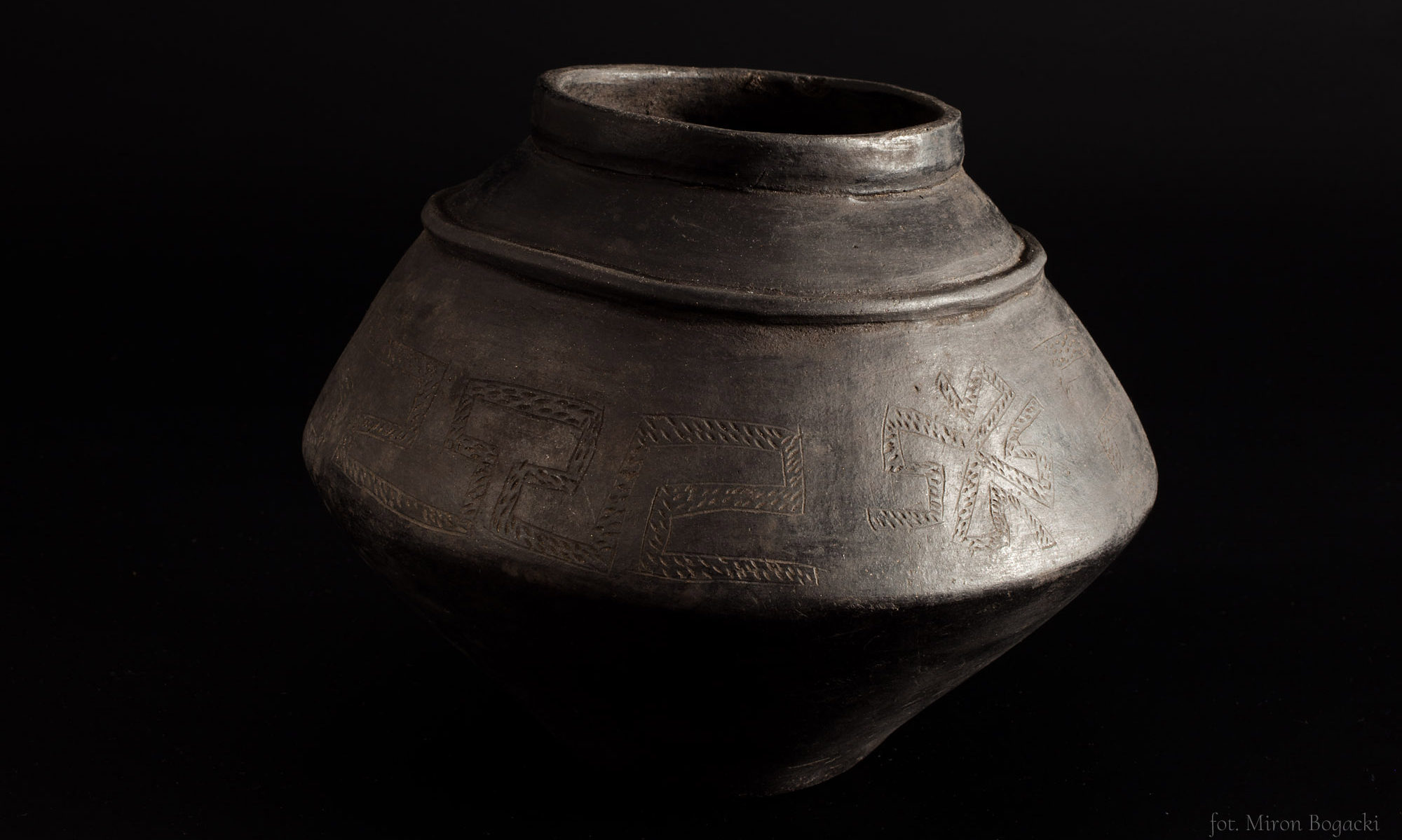Profile:
Bioarchaeology and/or Eastern Mediterranean and Near Eastern Archaeology
Overview
The programme is designed for candidates from all around the world who want to study bioarchaeology and Eastern Mediterranean and Near Eastern archaeology. We offer in-depth courses in the excavation of human and animal remains as well as courses in osteology, bone taphonomy and archaeological chemistry. Our lecturers have substantial fieldwork experience in various areas of the Near East and specialist lectures and classes are accompanied by the general curriculum in the archaeology of the Eastern Mediterranean and the Near East.
A significant element within the programme is field training: field walking survey and excavation seasons. The excavations are conducted by researchers affiliated with the Faculty of Archaeology at the University of Warsaw, in Poland or abroad – in Egypt, Georgia, Armenia, Uzbekistan, Bulgaria, Italy, South America and many more locations.
In the course of the programme, students will gain expertise in particular specialisations within archaeology, practical knowledge in excavating burial grounds as well as handling animal and human remains. At the same time, they will receive general humanistic knowledge enabling them to engage in interdisciplinary cooperation with researchers from other fields of study.
Our graduates will become professional excavators of cemeteries and animal bone deposits, with training in osteology sufficient for fieldwork macroscopic analyses of human remains, including sex and age assessment, basic palaeopathology, stress markers, metric measurements and basic odontology. They will be able to place results of bioarchaeological research in a wider historical and ecological context, as well as carry out various kinds of more specific laboratory research. Graduates of this second-cycle course will be prepared for independent research, as well as working for research and educational institutions, museums and conservation laboratories.
Programme
MA started in academic year 2022/2023, 2023/2024, 2024/2025
Printable version of programme: MA started in 2022-25
1st year
-
- Seminar I: Bioarchaeology – 60 hrs (9 ECTS)*
- Seminar II: Near East Archaeology – 60 hrs (9 ECTS)*
- History of Archaeology: Birth of Archaeology – Lecture, 30 hrs (2 ECTS)
- Introduction to Bioarchaeology – Lecture, 60 hrs (4 ECTS)
- Methodology of Archaeology – Lecture, 60 hrs (4 ECTS)
- Scientific Writing Workshop – Obligatory class, 30 hrs (3 ECTS)
- Obligatory courses – Class, 2 x 30 hrs (2 x 3 ECTS):*
- Obligatory course I: Basic Human Osteology – Class, 30 hrs (3 ECTS)*
- Obligatory course I: Advanced Human Osteology – Class, 30 hrs (3 ECTS)*
————————————OR————————————— - Obligatory course II: Selected Problems of Mediterranean Archaeology – Class, 60 hrs (6 ECTS)*
- Obligatory workshops – Class, 30 hrs (3 ECTS)*
- Obligatory workshop I: Bioarchaeology – Class, 30 hrs (3 ECTS)*
————————————OR————————————— - Obligatory workshop II: Archaeological Geophysics in
Practice – Class, 30 hrs (3 ECTS)*
- Obligatory workshop I: Bioarchaeology – Class, 30 hrs (3 ECTS)*
- Facultative courses – Class, 2 x 30 hrs (2 x 3 ECTS)
- Selected General University Courses [OGUN] – 60 hrs (5 ECTS)
- Intellectual Property Protection – Lecture, 4hrs (0 ECTS)
- Occupational Health and Safety – Lecture, 4hrs (0 ECTS)
- Excavations – 150 hrs (9 ECTS)
Sum of ECTS: 60
* Students decide the specialisation they want to choose for their Master Thesis (either I. Bioarchaeology or II. Near East Archaeology). According to this choice they have to choose the appropriate obligatory courses (Obligatory courses I if Bioarchaeology is chosen or Obligatory courses II if Near East Archaeology is chosen) and, similarly, the appropriate obligatory workshop (either Bioarchaeology or Archaeological Geophysics in Practice). The course that a student is not obliged to pass as a part of their specialisation can be chosen as a facultative course (e.g. a Bioarchaeology student can choose Selected Problems of Mediterranean Archaeology as a facultative course).
The list of available courses is presented each year in the course schedule.
For the students who start their studies in the academic year 2023/2024 – the course “History of Archaeology: Birth of Archaeology” will be held in the second year
2nd year
-
- Seminar – 60 hrs (9 ECTS)
- Seminar I: Bioarchaeology – 60 hrs (9 ECTS)
————————————OR————————————— - Seminar II: Near East Archaeology – 60 hrs (9 ECTS)
- Seminar I: Bioarchaeology – 60 hrs (9 ECTS)
- Facultative courses – Class, 5 x 30 hrs (5 x 3 ECTS)
- Visualisation of research results (workshops) – class, 30 hrs (3 ECTS)
- Obligatory workshops – Class, 30 hrs (2 ECTS)*
- Obligatory workshop I: Bioarchaeology – Class, 30 hrs (2 ECTS)*
————————————OR————————————— - Obligatory workshop II: Archaeological geophysics in practice – Class, 30 hrs (2 ECTS)*
- Obligatory workshop I: Bioarchaeology – Class, 30 hrs (2 ECTS)*
- Selected General University Courses [OGUN] – 60 hrs (5 ECTS)
- Field survey training – 30 hrs (2 ECTS)
- MA thesis – (24 ECTS)
- Seminar – 60 hrs (9 ECTS)
Sum of ECTS: 60
The list of available courses is presented each year in the course schedule.
MA started in academic years: 2019/2020, 2020/2021, 2021/2022
Printable version of programme: MA started in 2019-2022
1st year
-
- Seminar I: Bioarchaeology – 60 hrs (9 ECTS)*
- Seminar II: Near East Archaeology – 60 hrs (9 ECTS)*
- History of Archaeology: Birth of Archaeology – Lecture, 30 hrs (2 ECTS)
- Introduction to Bioarchaeology – Lecture, 60 hrs (4 ECTS)
- Methodology of Archaeology – Lecture, 60 hrs (4 ECTS)
- Scientific Writing Workshop – Obligatory class, 30 hrs (3 ECTS)
- Obligatory courses – Class, 2 x 30 hrs (2 x 3 ECTS):*
- Obligatory course I: Basic Human Osteology – Class, 30 hrs (3 ECTS)*
- Obligatory course I: Advanced Human Osteology – Class, 30 hrs (3 ECTS)*
————————————OR————————————— - Obligatory course II: Selected Problems of Mediterranean Archaeology – Class, 30 hrs (3 ECTS)
- Selected Problems of Ancient Egyptian Culture – Class, 30 hrs (3 ECTS)*
- Obligatory workshops – Class, 30 hrs (3 ECTS)*
- Obligatory workshop I: Bioarchaeology – Class, 30 hrs (3 ECTS)*
————————————OR————————————— - Obligatory workshop II: Exploring Academic Research Papers – Class, 30 hrs (3 ECTS)*
- Obligatory workshop I: Bioarchaeology – Class, 30 hrs (3 ECTS)*
- Facultative courses – Class, 2 x 30 hrs (2 x 3 ECTS)
- Selected General University Courses [OGUN] – Lecture, 60 hrs (5 ECTS)
- Occupational Health and Safety – Lecture, 4hrs (0 ECTS)
- Excavations – 150 hrs (9 ECTS)
Sum of ECTS: 60
* Students decide the specialisation they want to choose for their Master Thesis (either I. Bioarchaeology or II. Near East Archaeology). According to this choice they have to choose the appropriate obligatory courses (Obligatory courses I if Bioarchaeology is chosen or Obligatory courses II if Near East Archaeology is chosen) and, similarly, the appropriate obligatory workshop (either Bioarchaeology or Exploring Academic Research Papers). The course that a student is not obliged to pass as a part of their specialisation can be chosen as a facultative course (e.g. a Bioarchaeology student can choose Selected Problems of Mediterranean Archaeology as a facultative course).
The list of available courses is presented each year in the course schedule.
2nd year
-
- Seminar – 60 hrs (9 ECTS)
- Seminar I: Bioarchaeology – 60 hrs (9 ECTS)
————————————OR————————————— - Seminar II: Near East Archaeology – 60 hrs (9 ECTS)
- Seminar I: Bioarchaeology – 60 hrs (9 ECTS)
- Facultative courses – Class, 6 x 30 hrs (6 x 3 ECTS)
- Obligatory workshops – Class, 30 hrs (3 ECTS)*
- Obligatory workshop I: Bioarchaeology – Class, 30 hrs (3 ECTS)*
————————————OR————————————— - Obligatory workshop II: Archaeological geophysics in practice – Class, 30 hrs (3 ECTS)*
- Obligatory workshop I: Bioarchaeology – Class, 30 hrs (3 ECTS)*
- Selected General University Courses [OGUN] – Lecture, 60 hrs (5 ECTS)
- Field survey training – 30 hrs (1 ECTS)
- MA thesis – (24 ECTS)
- Seminar – 60 hrs (9 ECTS)
Sum of ECTS: 60
The list of available courses is presented each year in the course schedule.
PLEASE NOTE: When the number of students is low, the general programme may be modified each year. Students who are interested in other areas of archaeology may be allowed to enrol in some of our Polish seminars as external students (knowledge of Polish required). Some facultative courses and monographic lectures may be available on a bi-annual basis. Please consult the Head of Archaeology (Studies in English), Dr. Katarzyna Pyżewicz (wa.head.archeology@uw.edu.pl) if you would like to modify the schedule planned for the next semester.
Foreign students have a right to learn the Polish language for free.
Students of the second cycle (Master’s degree) can get:
• 240 tokens for Polish language classes
• 180 tokens for lectures organized by Polonicum
http://polonicum.uw.edu.pl/en/courses-during-the-academic-year
For more details, please contact the Head of Archaeology (Studies in English), Dr hab. Katarzyna Pyżewicz wa.head.archeology@uw.edu.pl

